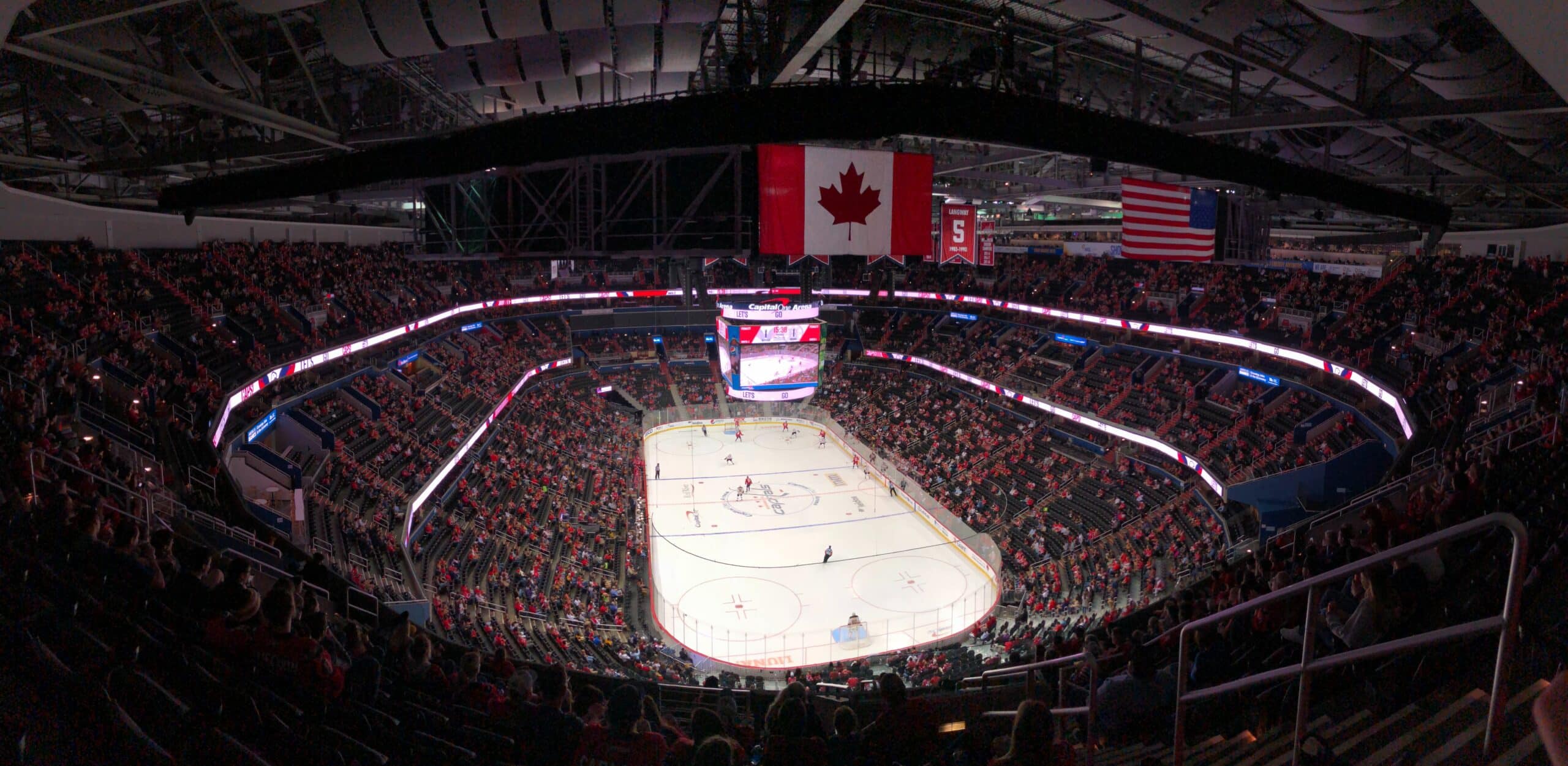Like the other professional leagues in North America (see my other article on the topic here), the NHL is subject to blackout rules and regulations. It follows a mandate from the NHL, with all 32 teams having their designated broadcast region. Also, the NHL often sells its games’ local broadcast rights to local networks.
If you are a TV distributor of ESPN+, Sportsnet NOW, or NHL.TV, you will have to enforce blackout based on the location of your subscribers. Indeed, to watch games, viewers need to reside within a team’s broadcast territory or subscribe to a package that grants access to out-of-market games, such as Sportsnet NOW Premium or NHL Centre Ice. Please also note that after 48 hours, the full-length blackout game replays can be available for replay.
Let’s take an example in Canada, Sportsnet NOW owns the regional rights to the Oilers. To avoid being blacked out from the team games on SN NOW STANDARD, an Edmonton fan must reside within the Oilers broadcast region (see the below map – that region is the red and orange with Alberta, Saskatchewan, Nunavut, and the Northwest Territories). And in that case, the fan will only be able to access that game on the local broadcaster that owns the TV rights.
Another example in the US: if a game is on the NHL Network, it is being simulcast with the local broadcast. And, if that game involves the Los Angeles Kings and Minnesota Wild, you can watch it if you live outside those markets. However, if you live within those markets, you cannot watch it on the NHL Network and rely on the regional network for viewing.

Who owns what in Canada?
As a quick reminder, the NHL rights are divided into national and regional packages:
• Sportsnet owns exclusive rights to both the:
– National NHL package; and
– Regional packages for the Canucks, Oilers, and Flames.
• Sportsnet and TSN share the regional rights to the Leafs.
• TSN owns the regional Jets, Habs (English), and Senators packages.
Any game designated “national” would air on Sportsnet across the country without any blackouts. However, all games set as “regional” games involve blackouts.
What about the US?
In-market, your local RSN (Regional Sports Networks) trumps ESPN+ and NHL Network. The ESPN+ and NHL Network broadcasts are blacked out for local fans unless ESPN+ has an exclusive. 1,000 ESPN+ games are non-exclusive out-of-market broadcasts, and 75 are exclusive games.
Out-of-market, the 75 non-exclusive NHL Network games trump ESPN+. When the NHL Network has a match, ESPN+ is blacked out.
For national games, ESPN has 25 exclusive games that trump your local RSN. When your team appears in one of these national games, local RSNs are blacked out.
The playoffs and Stanley Cup Playoffs air on ABC, ESPN, and TNT, and these TV rights trump local RSNs, which, you guessed it, causes blackouts.
Can the blackout policies trigger the creation of a team?
Last year, a new team joined the NHL, the Seattle Kraken. Some argue that it could be because of blackout.
Indeed, before the arrival of the Kraken, both Washington and Oregon states had enough coverage to justify an NHL blackout, even though they received some games from San Jose and Vancouver. If the league wanted to “grow the game,” given the population and climate of the area, Seattle/Portland should be Target #1. And that’s precisely what happened.
What if you need to deal with these blackout requirements?
The complexity is high, and as a distributor, you want to automate the management of the blackout. This is where broadpeak.io can help: with our Content Replacement application, you can use our API to replace the games by another live channel, a Video-on-Demand or a Slate, all based on the locations of your viewers.
Contact us if you need more information! You can also look our playbook to help you navigate with the different steps needed to implement the application.
Photo by Anders Krøgh Jørgensen on Unsplash










